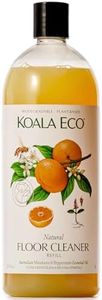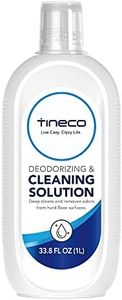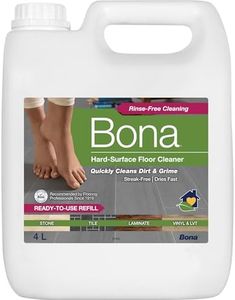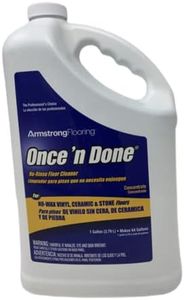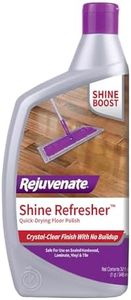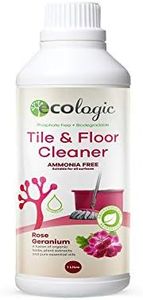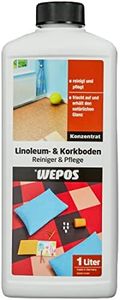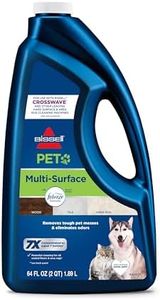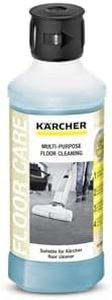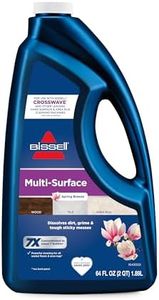We Use CookiesWe use cookies to enhance the security, performance,
functionality and for analytical and promotional activities. By continuing to browse this site you
are agreeing to our privacy policy
10 Best Linoleum Floor Cleaners
From leading brands and best sellers available on the web.By clicking on a link to a third party's website, log data is shared with that third party.
Buying Guide for the Best Linoleum Floor Cleaners
Choosing the right linoleum floor cleaner can make a big difference in keeping your floors looking fresh and lasting longer. Linoleum is a resilient and eco-friendly material, but it needs the right care—harsh chemicals or rough methods can damage it over time. When shopping for a linoleum floor cleaner, focus on products that effectively remove dirt and stains without harming the floor’s finish or color. Understand your cleaning habits and how much effort you want to spend: do you need something for quick daily use or deeper, less frequent cleaning? Start by knowing your needs and then look closely at the key features below to find the best fit.Type of CleanerThe type of cleaner refers to whether it is a liquid, spray, concentrate, or ready-to-use product. This matters because it affects how easy and convenient the product will be for you. Concentrates need to be diluted, which can make them more economical and customizable, but they require extra steps. Ready-to-use formats are quicker and simpler, good for those who want fuss-free cleaning. Sprays are convenient for spot cleaning while liquids may be better for mopping large areas. You should pick based on your cleaning routine—if you want quick touch-ups, look for sprays or ready mixes, but for regular thorough cleaning, a liquid or concentrate may be better.
pH LevelThe pH level indicates how acidic or alkaline the cleaner is. For linoleum, a neutral or near-neutral pH (around 7) is best since very acidic or alkaline cleaners can break down the material or discolor it. Most dedicated linoleum cleaners will mention being pH neutral. If you’re unsure, avoid anything described as an all-purpose heavy-duty cleaner, as those often contain harsher ingredients. Choose a pH-neutral cleaner if you want to ensure long-term protection and avoid damage to your floors.
Residue and RinsingSome cleaners leave a residue on the floor, which can make it look dull or attract more dirt. Products that are non-rinse or leave no residue are usually best for linoleum, as they’re gentler and make maintenance easier. Cleaners that require rinsing might be stronger but mean more work and potential for streaks. If you prefer a quick clean without extra steps, choose a residue-free, non-rinse formula.
Scent and SensitivityMany cleaners come with added fragrances, which can leave your home smelling fresh but may not be suitable for everyone, especially those with allergies or sensitivities. Unscented or mild formulations are ideal for sensitive households, while scented ones can add a pleasant touch after cleaning. Consider your household’s preferences and needs—if you have pets, children, or sensitivities, fragrance-free is a safer choice.
Eco-friendlinessEco-friendliness covers whether the cleaner uses biodegradable ingredients, has recyclable packaging, or is free from harsh chemicals. Since linoleum is often chosen for its eco benefits, using a green cleaner helps maintain that advantage and can be safer for your family and the environment. Look for certifications or clear labeling. If sustainability is important to you or your household, prioritize a product that advertises low environmental impact.
Compatibility with Cleaning ToolsCertain cleaners work better with certain tools, such as mop-and-bucket systems, spray mops, or even cleaning machines. Some products may specify that they are safe for use with spray mops or automatic scrubbers, while others are designed for hand-mopping only. Think about what cleaning tool you prefer to use, and check that the cleaner you choose is compatible to make your cleaning routine smoother.
